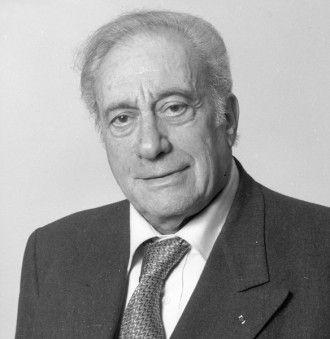“He was a man of immense culture. He was very courteous, very discreet, as if he wanted to be forgiven for his innumerable acquaintances.
In the words of academician Jean-Marie Rouart, who knew him well as President of the Nimier Prize, Denis Huisman was a great man.
Of those who were not looking for provocation or complication but had a simple life as their philosophy.
“Philosophy”
, the love of wisdom, was his watchword.
Wasn't it he who awakened generations of high school students to philosophy with his famous Manuel co-written with André Vergez?
Denis Huisman was a humanist.
He had a passion for transmission and popularization.
“The fault
,” he confided to Le Figaro many years ago, “
is to see specialists write for specialists.
I advocate that we speak in a simpler language to gain philosophy a public that it has lost over the past twenty years. ”
Denis Huisman died this Wednesday February 3 at the age of 91.
A humanist philosophy
He was born on April 13, 1929 in the 16th arrondissement of Paris.
Brilliant, the pupil first studied at the Lycée Montaigne, then Claude-Bernard before joining Henri-IV.
Then followed the faculty of letters of Paris and the IEP in the capital, which gave him a license in philosophy, a master's degree in letters then the status of doctor of letters.
First a teacher at Turgot, Charlemagne then Montaigne high schools, he became a lecturer at the Institute of Archaeological Art of the University of Paris, at the Alsatian School, at the Sainte-Barbe college in the early 1950s. Along the way, he also held the post of project manager in Edgar Faure's cabinet in 1958. The impressive curriculum vitae spilled across the Channel and across the Atlantic.
In 1961, Denis Huisman created the French School of Press Attachés, now called EFAP.
The school gave him a portrait in which we can read this quote:
“Without false modesty, I was a good teacher who primarily cared about the success of his students.
Most of my colleagues wanted to pass their passion on to the top of the class.
But the brightest students don't need pedagogy.
Me, my goal, was to make pass the bac to the average pupils!
Always guided by his humanist ambition, and never elitist, in 1963, he became president and founder of the Higher Institute of artistic careers (followed in 1967 the French School of Marketing, known as the School of Management of Paris, then in 2004, the French School of Journalism).
The same year, Denis Huisman co-created, with André Parinaud, the Roger-Nimier Prize.
A
"prize which rewards a young author whose spirit is in line with the literary work of Roger Nimier".
Swarmed Modiano, Cioran, Orsenna, Tillinac, Garcin, Adrien Goetz, Pierre Adrian or even Arnaud de La Grange ... Thus, as Jean-Marie Rouart recalls,
"he knew the whole world".
A discreet teacher
With his
Manual of Philosophy
co-written with André Vergez, the man in the shadows in spite of himself came to light.
The work in which
"all the great questions that have been asked during the 2,500 years which separate Socrates from Sartre are raised in this simple and well-documented
book
"
became the book of millions of high school students of the 1960s. , and for many decades.
But Denis Huisman remained discreet.
"He was a professor of philosopher who did not take himself for a philosopher,"
recalls Jean-Marie Rouart.
In the 1970s, he became, without being too exhaustive, director of collections at Editions Bordas, Sedes, Nathan, Hachette;
producer at ORTF and TF1 of the broadcasts Great Psychology Problems, Interrogations, Ideas and Men;
General Secretary of the Prize and the Notebooks Roger Nimier;
President of the Paris Salon… Denis Huisman wrote on art, communication, academic success and of course, philosophy.
In 1997, on the occasion of the release of
Socrates on the internet
, he explained to Figaro Littéraire:
“I believe that there is a need for philosophy, inherent in man.
If we present philosophy in a romanticized way, we realize that there is a real need for reflection among the general public. ”
And to clarify, he who decidedly did not like the spotlight: “We must always fear philosophers who take themselves seriously.
The key word remains that of Pascal: "To make fun of philosophy is really to philosophize."

